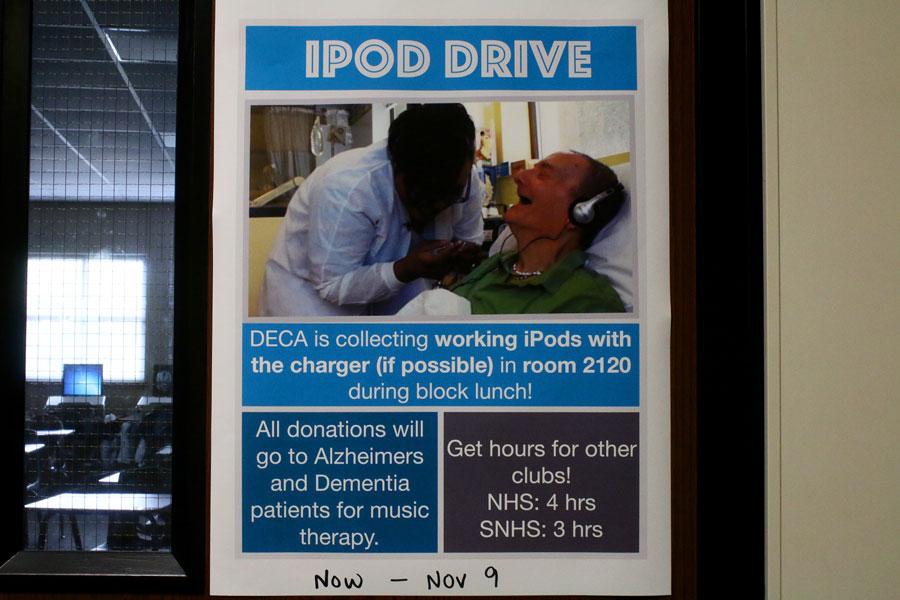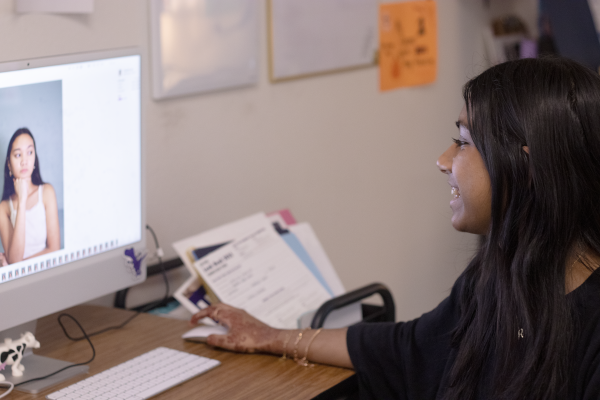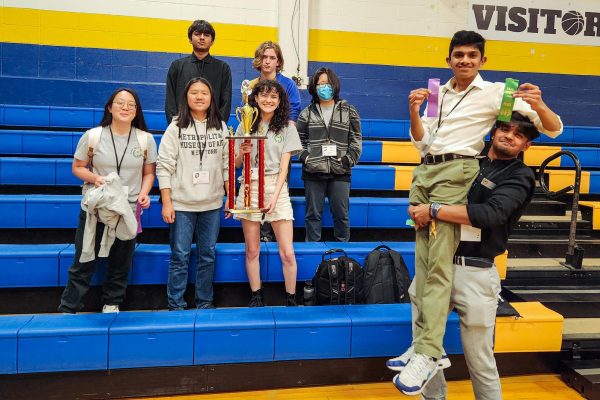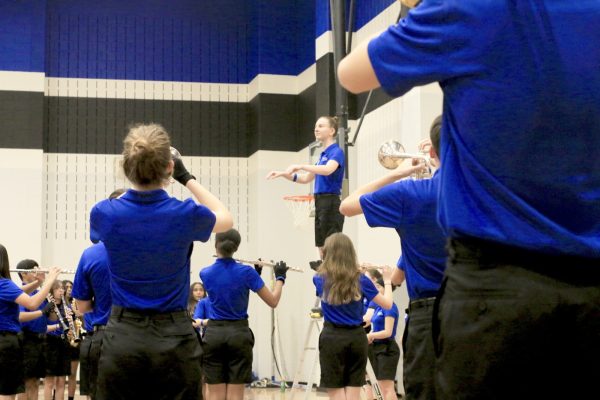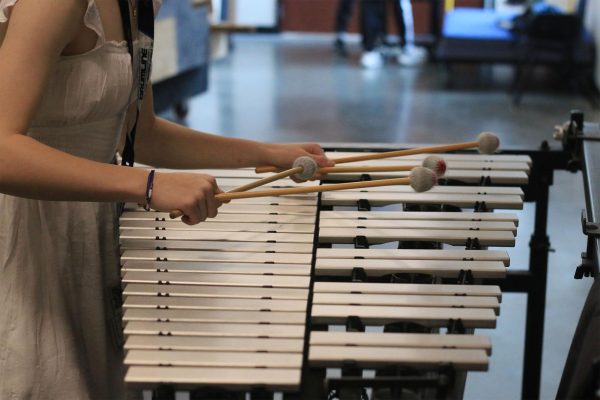DECA collects iPods to aid Alzheimer’s patients
DECA (Distributive Education Clubs of America) is collecting iPods to donate to patients with Alzheimer’s and dementia until Nov. 9. DECA started collecting iPods Oct. 17 and will make the donation to the US Memory Care of Colleyville and to a speech pathology program at Texas Tech University.
“This year, we were thinking we should get into community service and help out the community a little more,” senior DECA member Chris John said. “We’ve been thinking that maybe we should branch out and we thought this was something we should pursue.”
The idea to start collecting iPods came from DECA adviser Julie Siefert, who showed the club a documentary called, “Alive Inside: A Story of Music and Memory.” The documentary is about a social worker who uses music as a form of therapy for dementia and Alzheimer’s patients. The documentary resonated with the officers and inspired them to pursue a similar service.
“We really took heart to that [documentary] and were inspired to do something about it,” senior DECA secretary Ali Bhaiwala said.
Studies have shown that music can help people with Alzheimer’s and dementia recall their 20’s, which is when the brain recognizes music the most.
“What the [care centers] are going to do is they’re going to create personalized playlists for the residents there,” senior DECA president Simran Sohal said. “These playlists are going to be filled with music that [the residents] remember from their 20’s. So when they listen to it, it brings back memories and is basically music therapy.”
DECA’s goal is to collect 100 iPods in total.
“A lot of people have iPods lying around their house and they don’t really use it,” John said. “It would be great if you could donate and give it to us and we could give it to [the residents].”
DECA also has a goal to brighten the residents lives and help with their daily struggles.
“A lot of people would have to stay in a different center because they aren’t stable enough,” Sohal said. “But with music therapy, they can stay with their loved ones because they’re more calm because of the music.”
DECA is encouraging students to help make a difference in the lives of those dealing with the disease.
“Donate iPods. Tell your friends, family, people in your community,” Sohal said. “It’s pretty important that people know that if you’re not using an iPod, this is something that could really change someone’s life.”

Senior Tatiana Calzado is the opinion editor and this is her third year on staff. She enjoys writing, playing the piano and ukulele, and eating sushi....



